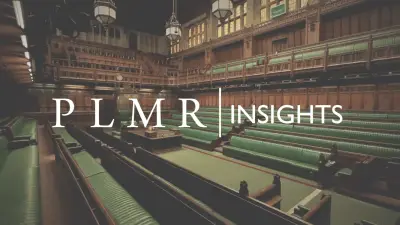It seemed inevitable that the tensions over Brexit within the Conservative Party would boil over at some point and the past month has proved this to be the case. From the moment the Cabinet were shown and – after lengthy debate – agreed the Withdrawal Agreement, there has been a mix of unease and anger across various factions of the party.
Having secured agreement for the deal within Cabinet, the following day Number 10 found itself on the end of a ‘Brexodus’ as a range of government ministers and PPS’s quit their roles in opposition to the content of the agreement. Notably, the conveyor belt of resignations included Dominic Raab MP, leaving the government in the slightly awkward position of having its Brexit Secretary resign over its Brexit deal.
The momentum generated by the succession of resignations demonstrated the strength of feeling within the party against the deal. Equally importantly, it also brought to light both the power and weakness of Jacob Rees Mogg and the European Research Group (the group of Conservative Parliamentary Eurosceptics). As the resignations racked up, the more ardent Brexiteers started talk of letters being sent into the 1922 Committee and the PM facing a vote of no confidence – there was talk that 48 letters (the number currently required to force a confidence vote) being reached easily.
Yet, the 48 letters failed to materialise and whilst only Graham Brady knows precisely how many letters he currently has in his possession – it seems clear that the ERG’s expectation was wildly optimistic. In part, this reflects differing views within the ERG on how best to proceed. Some MPs were nervous that even if a confidence vote could be forced, it was unlikely that a majority of MPs would vote to topple the PM (thus securing her in post for another 12 months, as a second vote cannot be held in that time). Others felt it was wiser to hold off until the ‘meaningful vote’ had been held. Either way, the gung-ho approach by the ERG leadership was left to appear naïve.
None of this takes anything away from the desperate situation the government finds itself in as it seeks to push its deal through Parliament. With many MPs from both main parties having already declared their intention to vote against the deal, there are very real doubts that the government can command a majority in the Commons when it comes to the vote on the 11th December.
Arguably, the PM’s best bet remains with the Brexiteers who have stayed in the Cabinet. Between now and the vote, May will require senior MPs such as Michael Gove MP and Liam Fox MP to use all their powers of persuasion to convince their colleagues to vote with the government. Meanwhile, the PM has gone into full campaign mode – touring the country and appearing on radio and TV show alike to sell the deal. A tantalising TV debate between the PM and Jeremy Corbyn could also yet take place.
The notion of critical and defining moments in British politics can often be overused, but the vote on the 11th December certainly qualifies. Should the deal pass, the country moves on – seeking to define what a future trading relationship with the EU looks like. If it doesn’t, all manner of scenarios could eventuate – from a second attempt at pushing the deal through, to a no deal Brexit or possibly (depending on how heavy a defeat it is) a Prime Ministerial resignation. Of course, none of this is good for business and investment in to the UK, but that particular argument appears to have fallen on deaf ears in recent times.





